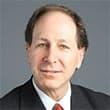This course is part of Finance MicroMasters.
This advanced course, part of MIT's MicroMasters in Finance, develops mathematical foundations crucial for modern finance professionals. Students learn to model financial markets, make predictions under uncertainty, and optimize business decisions. The curriculum covers probability distributions, time-series models, stochastic processes, optimization techniques, and computational methods. Designed for quants, traders, risk managers, and investment professionals, this course provides practical tools for real-world financial analysis and decision-making.
4.5
53,788 already enrolled
Instructors:
English
English
What you'll learn
Master probability distributions and their applications in financial mathematics
Develop expertise in time-series models including random walks, ARMA, and GARCH
Understand and apply continuous-time stochastic processes
Implement optimization techniques for portfolio management
Apply linear algebra concepts to asset pricing
Conduct advanced statistical and econometric analysis
Skills you'll gain
This course includes:
PreRecorded video
Graded assignments, Exams
Access on Mobile, Tablet, Desktop
Limited Access access
Shareable certificate
Closed caption
Get a Completion Certificate
Share your certificate with prospective employers and your professional network on LinkedIn.
Created by
Provided by

Top companies offer this course to their employees
Top companies provide this course to enhance their employees' skills, ensuring they excel in handling complex projects and drive organizational success.





There are 7 modules in this course
This comprehensive course covers the mathematical foundations essential for modern quantitative finance. Topics include probability distributions in finance, time-series models, continuous-time stochastic processes, optimization techniques, linear algebra applications in asset pricing, statistical analysis, and Monte Carlo simulations. The course emphasizes both theoretical understanding and practical applications, preparing students for real-world financial engineering and quantitative analysis roles.
Probability
Module 1
Statistics
Module 2
Time-series models
Module 3
Continuous time stochastic processes
Module 4
Linear algebra
Module 5
Optimization
Module 6
Numerical methods
Module 7
Fee Structure
Individual course purchase is not available - to enroll in this course with a certificate, you need to purchase the complete Professional Certificate Course. For enrollment and detailed fee structure, visit the following: Finance MicroMasters
Payment options
Financial Aid
Instructors

5 Courses
Executive Director of the MicroMasters Program in Finance at MIT
Egor Matveyev is the Executive Director of the MicroMasters Program in Finance and a Senior Lecturer in Finance at the MIT Sloan School of Management. His research interests encompass corporate finance, organizational economics, and corporate governance, focusing on topics such as corporate director labor markets, the influence of management teams and CEOs on firm performance, and the valuation challenges investors face regarding firms' investment options. Matveyev teaches courses including 15.401 Managerial Finance and 15.434 Advanced Corporate Finance.

7 Courses
From Theoretical Physics to Financial Innovation at MIT Sloan
Paul F. Mende serves as a Senior Lecturer in the Finance Group at MIT Sloan School of Management, bringing a unique blend of theoretical physics and quantitative finance expertise to his role. After earning his AB in physics from Harvard University and Ph.D. in physics from Princeton University, he began his career in academia as an assistant professor of physics at Brown University and a research associate at MIT's Center for Theoretical Physics and Department of Mathematics. His transition to finance led him to significant roles including director of the Money Management & Trading Group at Cambridge Technology Partners and analyst at MDT Advisers. His most notable achievement was co-founding Fort Hill Capital Management, LLC, where he served as director of research from 2002 to 2010, specializing in equity derivatives and quantitative trading strategies. Under his leadership, Fort Hill launched successful ventures including Bay Hill Fund LP and the innovative Absolute Strategies Fund, which pioneered a transparent, SEC-registered mutual fund structure with daily liquidity.
Testimonials
Testimonials and success stories are a testament to the quality of this program and its impact on your career and learning journey. Be the first to help others make an informed decision by sharing your review of the course.
Frequently asked questions
Below are some of the most commonly asked questions about this course. We aim to provide clear and concise answers to help you better understand the course content, structure, and any other relevant information. If you have any additional questions or if your question is not listed here, please don't hesitate to reach out to our support team for further assistance.
-1726828298412.png&w=128&q=75)


